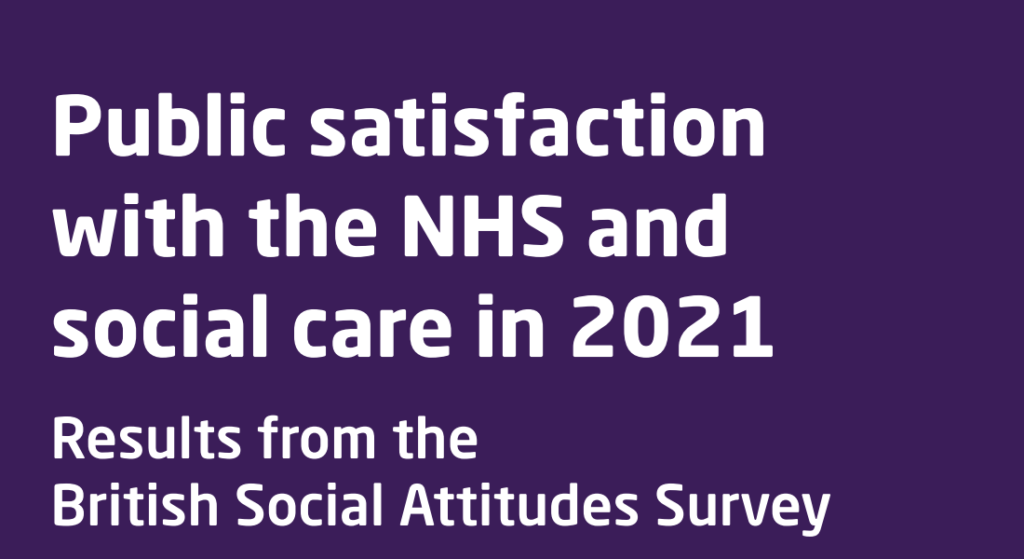Nearly seventy-four years ago, the NHS was created by a Labour government that was more radical than any Labour government since. The service has remained enormously popular and for three generations it has been a model and a microcosm of socialism in action.
The Tory Party opposed the foundation of the NHS, and they still oppose it in principle today. But because of its popularity, they have had to have a long-term strategy to privatise it, by running it down so much that there is widespread dissatisfaction, and the public are pushed towards private health care.
Up to a point, their strategy has succeeded, as waiting lists for treatment are at record high levels and private hospitals, clinics and services are feverishly advertising their paid-for treatment. So much damage has been done to the NHS that it will take another Labour government, one committed to socialist policies, to re-establish what was built by Aneurin Bevan in 1948.
For twelve years, the NHS has been starved of cash; it is deliberately blighted by unfilled vacancies, while at the same time, any part of the service remotely profitable has been hived off to the private sector. There is no other way of putting the private sector’s relationship to the NHS, other than to say that it has been looting the service for decades – and it continues to do so.
This week there has been a succession of stories that have highlighted the dire situation of the NHS, but as the public at large realise, the problems are not in any way due to its staff, the overwhelming majority of whom are long-suffering, over-worked and grossly underpaid.
Staffing levels and staff morale a long-standing issue
Perhaps the most tragic of these this week’s stories centres on the Shrewsbury and Telford NHS Trust midwifery service. According to the BBC report, “catastrophic failures…may have led to the deaths of more than 200 babies, nine mothers and left other infants with life-changing injuries”. But once again, the report on those failures, written by a senior midwife with decades of experience, highlighted an ongoing neglect of staff shortages.

At Shrewsbury and Telford, it says, “staffing levels and staff morale were an issue for some time” and it highlights shortages across the whole of England. “Midwifery and support staffing on postnatal wards”, it goes on, “is often poor, and across England maternity teams will recognise that staff are moved from postnatal wards and the community when there are staff shortages in those areas considered to be more acute, such as the labour ward…”
In fact any NHS midwife or nurse could have written the words of the report, that “Poor staffing levels, both midwifery and obstetric, will affect both the quality of patient postnatal care, and staff morale”. There have been crocodile tears from the government about Shrewsbury and Telford, but that doesn’t alter the fact that their withdrawal of bursaries for midwife training is one of many deliberate acts of policy that contributed to the tragedy.
On the same day this midwifery report was released, it was also revealed that there is a record level of general dissatisfaction with the NHS. A survey, commissioned by the Nuffield Trust and carried out by the National Centre of British Social Attitudes, involved over three thousand participants, with all ages, income groups, sexes and party affiliations involved.
It found the lowest levels of satisfaction with GPs (38%), dentists (33%), A&E (39%) and both hospital inpatient (41%) and outpatient (49%) services, since it began tracking public attitudes. Only 36% were content with the way the health service is run and performing.
Public overwhelming back the idea of the NHS
This level of discontent clearly reflects the experiences of the man and woman in the street, trying and often failing to get the treatment they need. It reflects the difficulties in getting to see a GP, in waiting years on a list for treatment, or waiting hours for an ambulance to arrive. But on the other hand, the press headlines about dissatisfaction hide the fact that there is still widespread public support for the principle of the NHS and an understanding that underfunding and understaffing are key reasons for weaknesses in the service.
“The overwhelming majority of respondents agreed”, the survey found, “that the founding principles of the NHS should ‘definitely’ or ‘probably’ apply in 2021: that the NHS should be free of charge when you need it (94 per cent), the NHS should primarily be funded through taxes (86 per cent) and the NHS should be available to everyone (84 per cent).”
The real issues are not difficult to find. The NHS now has over 110,000 unfilled posts in England, including vacancies for nearly 40,000 nurses and over 8,000 doctors. Despite all the promises made by the Tories for twelve years, they don’t have the slightest intention of resolving the problem of NHS staff shortages, because that would mean higher pay.

Specifically on midwifery, a number of recommendations have come out of the Shrewsbury and Telford report, but as the Royal College of Midwives points out, many of them are simply unrealizable because of staff shortages. In the year to November 2021, they point out, midwife numbers dropped by 331 whole time equivalent roles.
What would resolve NHS staff shortage is decent pay. Considering inflation, higher NI, taxes and superannuation, NHS staff, like most public sector workers, have had a real-term cut in their take home pay of over 15% in the last decade. There is not a snowball in Hell’s chance that this government will make up that deficit to recruit staff.
On the contrary, the Tories are determined to drive more staff away, for example by announcing – again on the same day – that free parking for NHS staff would be abolished. As if the demoralisation of over-work and underpayment weren’t enough, the government comes back with more, like the old joke, “the beatings will continue until morale improves”.
But morale is far from improving. The NHS staff survey from 2021, with nearly 650,000 respondents, tells you all you need to know about morale and overwork. Under a third of staff were “satisfied with their level of pay”, down by 4% on the previous year and less than half (43%) felt they were “able to meet all the conflicting demands on their time at work”. Nearly half (46%) “feel worn out at the end of their working day” and as a result of diminishing morale, 31% of staff “often think about leaving”. Only 59% “would recommend their organisation as a place to work”.
A rich gravy train of contracts
On the issue of the NHS alone, therefore, the Labour leadership could win the next general election. The Tories have facilitated the looting of the NHS with a level of corruption unprecedented in modern times. The Covid pandemic has been a golden opportunity for the friends and associates of the Conservative Party to get onto a rich gravy train of contracts, notably for PPE, much of which was later found to be unusable. One Tory peer was even lobbying for her company to get lucrative contracts – successfully, as it turns out – even before the company was formally registered.

But the plundering of the NHS has gone on for decades. One aspect of this has been the Private Finance Initiative, started by Tory Prime Minister John Major, but adopted wholesale by the Blair/Brown ‘New Labour’ government. It gave a green light to builders, developers and private service providers to fleece the NHS for decades.
Trusts have paid for new-build hospitals several times over, and are still paying for them today, to the tune of billions of pounds. PFI payments alone constitute a river of money flowing annually out of the NHS in the bank accounts of private developers. Like third-world countries, Hospital Trusts have had to renegotiate their debts, some of which will never be repaid. The Whiston Hospital in St Helens, which had to be bailed out, was paying 27% of its income in debt servicing. PFI is such a lucrative scam that there is a secondary market in PFI stock holdings.
What is needed to save the NHS is a complete break from the privatisation, outsourcing and the looting. On these issues, the rank and file of the Labour Party are far more in tune with the view of the general public than the Labour leadership. At the last Labour conference a composite resolution, passed overwhelmingly, demanded from a Labour government “legislation to bring about a universal, comprehensive and publicly provided NHS, fit for the 21st century.” The full text of the composite is posted here and the report on the debate at conference is here.
This resolution and the views of the public on the deficiencies in the NHS are completely underestimated by some in the Labour Party. The right-wing Renaissance group recently published a policy document which claimed rather incredibly – from a survey of 60 hand-picked people – that “voters did not raise many concerns about Tory privatisation or underfunding.”
Labour’s right wing are stuck in the past…the wrong past
Statements like this, drawn from a miniscule sample of voters, with no scientific survey methods, unfortunately set the tone for the right wing and most likely for the Labour leadership. It looks like Labour leaders such as Shadow Health minister, Wes Streeting, Shadow Chancellor, Rachel Reeves and leader Keir Starmer will avoid anything remotely ‘radical’ and leave the NHS in the hands of the privatisers and looters.
Judging by the views of many of the Parliamentary Labour Party today, it is fair to say that many would have supported the Tories in opposing the setting up the NHS in 1948. Labour’s leadership, unfortunately, are so desperate to distance themselves from the Corbyn leadership that instead of modelling their ideas on Nye Bevan’s legacy, they hark back to Tony Blair’s ‘internal market’ model for the NHS.
As the Labour Conference, affirmed, the NHS “remains the most cost-efficient health service in the developed world, largely because it’s still mostly publicly provided by directly employed staff, and not by private providers”, and that has to be starting point on which we fight for a re-established NHS.
A central element in our fight to save the NHS, therefore, is a struggle for a Labour leadership with the same aspirations as Labour conference, as well as for a trade union leadership that takes the issue as seriously. The starting point has to be the provision of health care and not profit. It will take a Labour government committed to fundamental socialist change to correct the serious debilitating deficiencies of the NHS today.
* For a reversal of all Tory spending cuts and a fully-funded and publicly-owned NHS
*For a living wage for all NHS workers, linked to the cost of living, so that all health staff can afford a decent life and do not need to go to food banks.
*For the cancellation of all private contracts, with all services brought back in house and for the annulment of all PFIs, with hospitals and buildings assigned to the appropriate Trusts without further compensation.
*For the integration of the private sector into the NHS, including private hospitals and clinics.
*For a democratic management structure for the NHS, to include representatives of NHS workers’ unions, local communities and patient organisations.



